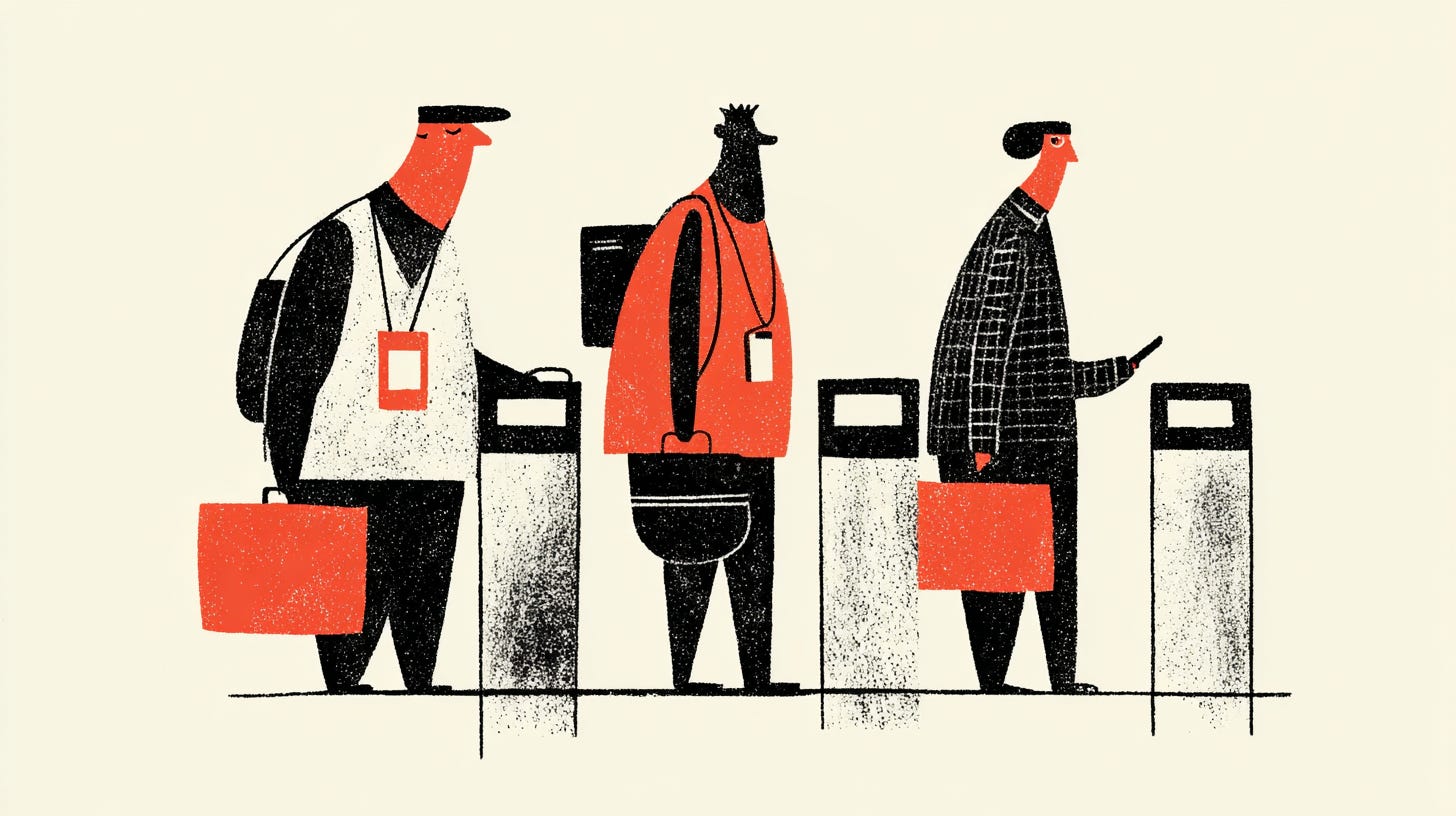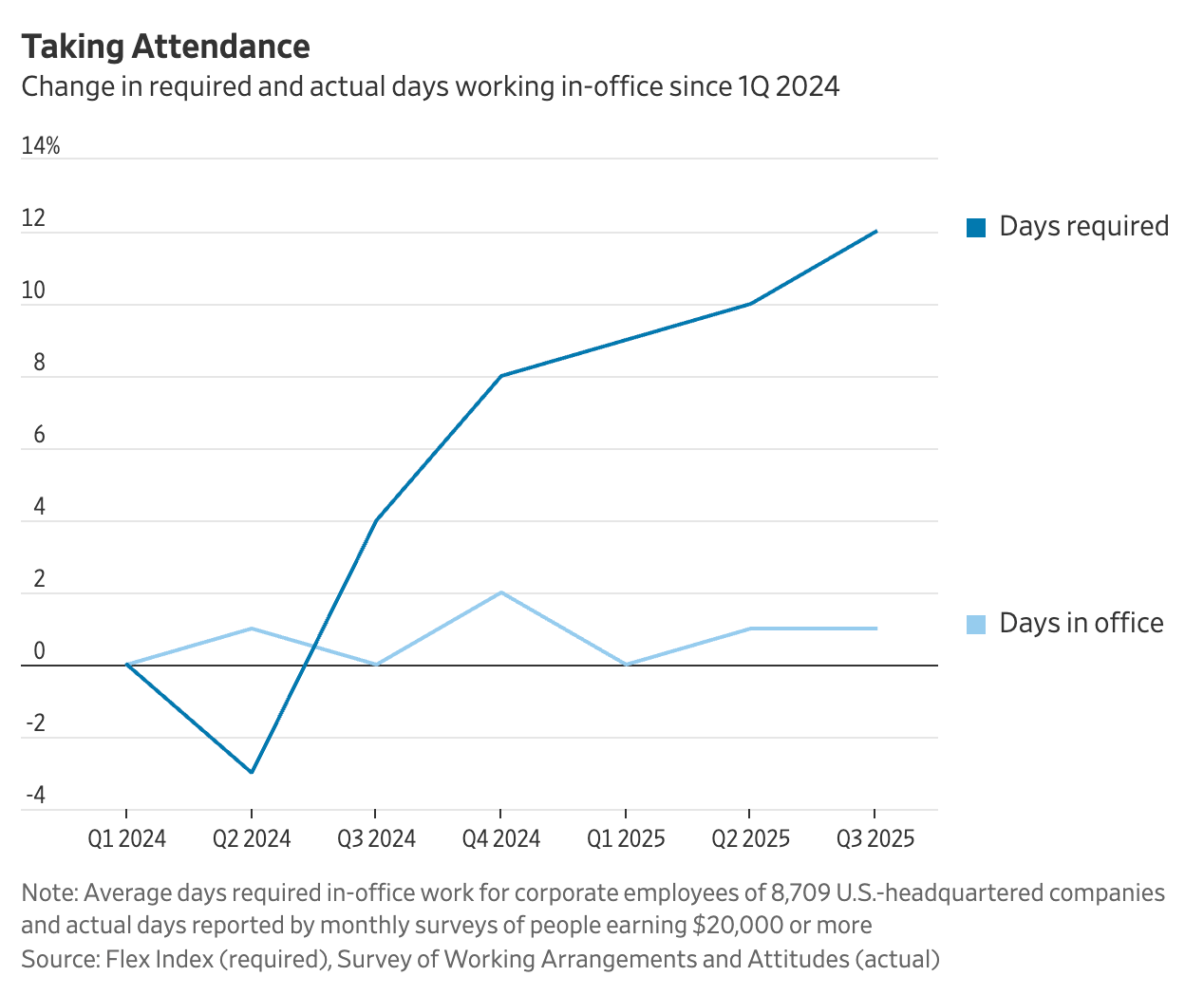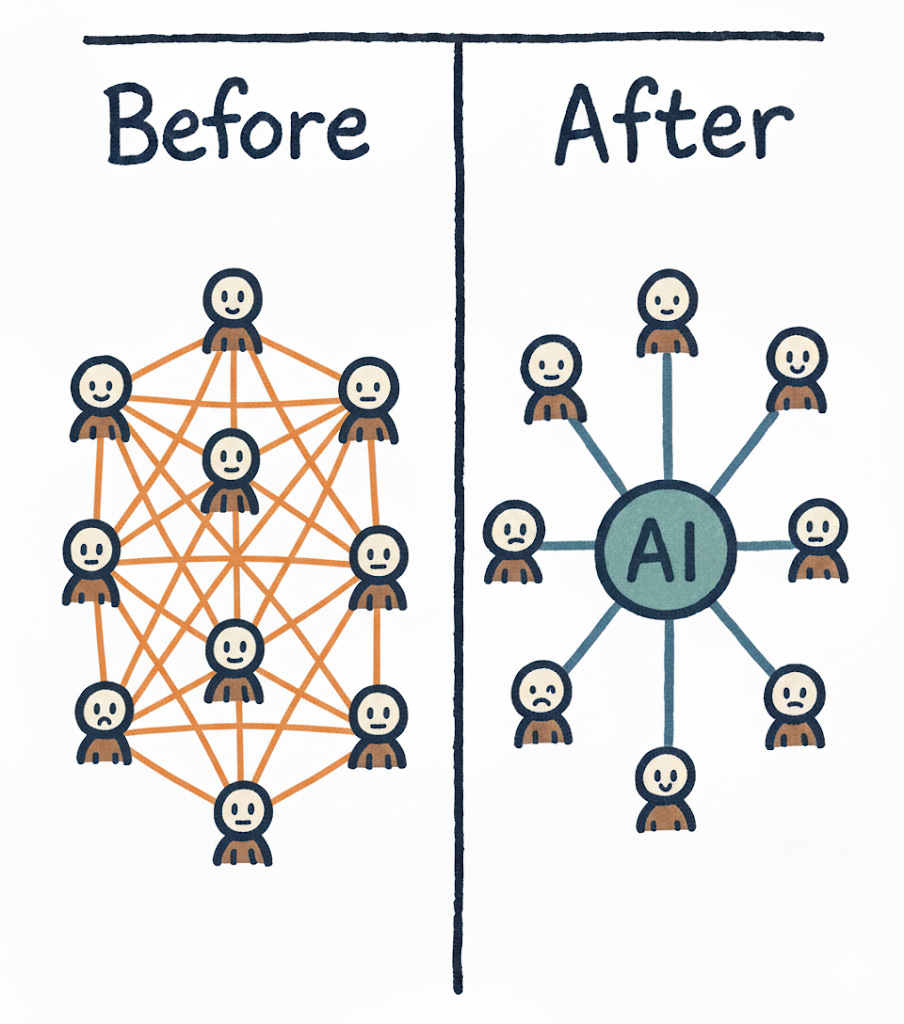RTO mandates lead to us questioning leaders
ALSO: Will clankers hollow out your group chat? Microsoft leans in to 'moments that matter'
RTO mandates lead to us questioning leaders
This week an article in the Wall Street Journal shared new data about the failure of Return to Office mandates. Over the course of the last three years we’ve heard repeated headlines of big organisations demanding workers return to the office.
Bosses explained that supplies of culture were being kept in the office and no one was accessing them. The article uses Flex Index data to suggest that despite all the hot air workers just aren’t going in any more than before.
But the impact of this is bigger, it undermines leaders on everything they say.
When workers are asked to come into the office more, they run a prediction through in their heads, ‘will I chat to colleagues?’, ‘will something worthwhile happen?’, ‘will the extra domestic stress justify the expense and time lost?’
Workers tell us in research that when they go in to the office they hold those decisions up to scrutiny. Nothing kills RTO mandates more than going in to the office and sitting on Teams calls all day. Or not seeing colleagues because of the lack of hot desks.
Suddenly we’re all placed in a moral conundrum: if I don’t go in on that extra day will anyone say anything?
Now, our boss, who doesn’t really agree with the 4 day mandate is tasked with ‘having a word with us’. But they don’t bother because they don’t want to have an awkward conversation. They tell HR they’ve had a chat with the team.
Now we’re reached a new equilibrium where team members aren’t coming into the office any more but are comfortable believing that senior leaders make bad decisions. That’s never a good place for a successful culture to start.
Will Clankers hollow out your group chat?
There’s new research suggesting that AI chat is replacing human interaction in work settings, leaving people describing themselves as isolated and alone.
A paper styled ‘How Generative AI is Eroding Social Interactions and Student Learning Communities’ was published earlier this summer, and it documents how college students are turning to ChatGPT rather than seeking help from fellow college students. The researchers noted that the arrival of the AI tools had served to reduce social interactions with peers, teachers and the wider community and had also served to leave ‘students feeling isolated, demotivated, and shameful’. One student told the researchers that a class group chat had gone quiet:
‘We used to [have a class Discord channel]. It used to be a lot of people just asking questions about maybe, a lab or a homework... I guess everyone’s just [using] ChatGPT now.‘
Across the 17 students questioned there was a unanimous recognition that there had been a reduction in peer interactions. We’re aware that when asking fellow humans for help we need to use empathy to understand their mood before asking them, in contrast ChatGPT didn’t require us to practice those human skills, ‘There’s a lot you have to take into account: you have to read their tone, do they look like they’re in a rush...versus with ChatGPT, you don’t have to be polite.’ It might make the AI superficially more appealing, but exposure to fellow students also serves to improve our people skills.
11 out of 17 students reported that the changes to the method of learning had served to make them feel more isolated. The conclusion of the study gives a powerful warning of what might be coming for workplace relationships:
‘Despite some benefits, AI may be inadvertently destroying the very social fabric that supports meaningful learning. Going forward, it is necessary to balance the integration of AI with the irreplaceable value of human interaction.’
Read more: How Generative AI is Eroding Social Interactions and Student Learning Communities
(HT to Pronita Mehrotra for alerting me to the research)
Producing this newsletter, Make Work Better (and the podcast, Eat Sleep Work Repeat) is a labour of love taking me two or three full days every week. While I treat it like a full time job, it generates close to zero money (by choice). If you see value in me continuing this work please share it on a chat channel or with a like-minded colleague.
‘Moments that matter’ - I’ve been hearing this phrase a lot in HR communities. The idea that we need to use our together time to foster meaningful moments of connection. The phrase came up in a brilliant interview with Amy Coleman, Microsoft’s Global Head of People Analytics. She talks about Microsoft using a metric of thriving (instead of engagement) to see how employees were getting on. They describe thriving as being ‘energised and engaged to do meaningful work’.
One of the outputs of measuring thriving is that ‘we would see that there was more and more of a correlation between people coming into the office… than the folks that were working remotely’. They looked clearly at this and decided that this was ‘'a causal relationship’ - it was the coming into the office that was making the difference. It formed the reason behind the change I mentioned last week of MS going from a 2.5 day RTO mandate to 3 days in office
On a slightly more negative note this article on The Verge is a stark contrast on the state of the firm, suggesting that morale at Microsoft ‘is at an all-time low’ as the firm is riddled with ‘a culture of fear’
Nick Shackleton-Jones' TikTok content about 'working in corporate' is consistently funny. (He doesn't post it on LinkedIn or Reels sadly). His post last week about CEO's desire to drive a RTO being about their status and identity is so spot on that it deserves a much wider audience.
Nick says that at home middle aged CEOs don't get the fawning respect they think they deserve from their wives and kids. Being respected is an important part of why people aspire to become leaders. They like feeling like people will listen to them. People get in touch to pick their brains or ask to be mentored by them.
Along comes the pandemic 'and you're now just another person in a t-shirt on a Zoom call'. They get criticised if they don't empty the dishwasher. No one keeps quiet while they're on their calls.
They're desperate to get back to wearing their crown in the office. With the collapse of the office their identity fell apart. Everything they'd aspired to was being thrown away.
Can't we just go back to the office where people laugh at their jokes, where they felt important. The bosses want their status back! (If you’re not on TikTok check it out on LinkedIn)
 Tiktok failed to load.
Tiktok failed to load.Enable 3rd party cookies or use another browser
The Guardian found that a third of UK firms are using spyware to track workers’ activity
Across companies that launched formal culture initiatives 72% showed no meaningful increase in employee trust, engagement or retention. This HBR article about culture eventually becomes a good read: ‘many leaders treat culture as a communication strategy. They believe it lives in messaging—in the articulation of purpose, the rollout of values, the tone of internal campaign’. The challenge is when the experience of work doesn’t match a changed narrative. The article is filled with practical suggestions: ‘At your next town hall, ask a frontline employee to open with one uncomfortable observation about culture, chosen in advance by their peers. Don’t explain. Don’t defend. Just listen, acknowledge, and take one visible step forward. The point isn’t the question—it’s what you prove by how you answer.’
What gives a team ‘the collective edge’
If we shifted our focus from the individual to the collective how different would our results at work be?
On the new podcast I'm joined by Colin Fisher who explains that great teams are the most important contributors to great outcomes at work. The problem is that for many of our teams they are less than the sum of the parts. Groups get bigger and bigger and stop being effective. Managers avoid having discussions about trimming teams down - and it leads to failure.
Colin's new book The Collective Edge breaks down the ingredients of forming good teams. Colin Fisher is a professor at UCL School of Management







